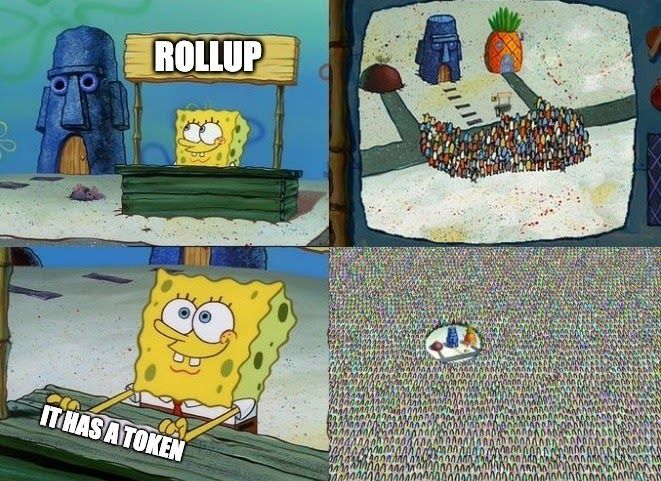Introducing Fuel - The Fastest Modular Execution Layer
Today, we introduce the fastest modular execution layer: Fuel, adding a new chapter to the blockchain scalability story.

Fuel v1 began as a layer-2 (L2) scalability technology for a monolithic Ethereum. It was the first optimistic rollup on mainnet Ethereum, deployed at the end of 2020. The project has grown significantly since its humble inception, now boasting more than 35 of the best and brightest engineers and support from some of the best blockchain firms and industry leaders.
Today, we introduce the fastest modular execution layer: Fuel, adding a new chapter to the blockchain scalability story.
The Problem: L2s don’t Solve the Scalability Crisis Alone
Although L2s have opened up a margin of cost reduction for access to the Ethereum ecosystem, the total throughput increase has been modest at best (with both optimistic and ZK approaches). And in times of high traffic on Ethereum, L2s have failed to keep costs low, often rising to several dollars per transaction.
As a community, if we want to achieve true global access to blockchain technology, we cannot settle for a modest reduction in fees. We need dramatic change. Change that not only reduces waste and inefficiency, but opens up new use cases never before seen in the blockchain space.
What is a Modular Execution Layer?
There is an ongoing colossal shift happening in layer-1 (L1) blockchain architectures. We are moving away from a monolithic design, where consensus, data availability, and execution are tightly coupled (e.g. today's Ethereum), to a modular future, where execution is separated from data availability and consensus (e.g. tomorrow's Eth2, or Celestia). This separation allows for specialization at the base layer, delivering a significant increase in bandwidth capacity.
Just a reminder: unshackled from the challenging work of forming honest majority consensus, monetary premium, secure bridging and social legitimacy, rollups have a far wider scope for rapid innovation than monolithic execution layers - things impossible on monolithic L1s.
— polynya (@epolynya) March 18, 2022
Fuel is designed specifically to leverage this additional bandwidth in ways no other scalability system can. Fuel is the fastest execution layer for the modular blockchain stack, delivering the highest security and flexible throughput. The word "flexible" here is important because it means Ethereum-style interoperable Turing-complete smart contracts, and not just simple transfers.
Fuel defines a modular execution layer as: a verifiable computation system designed for the modular blockchain stack.
More concretely, a fraud- or validity-provable blockchain (or other computation system) that leverages a modular blockchain for data availability.
Fuel specializes in making execution as efficient as possible. This is in contrast to rollups that have been deployed to date, which have optimized for monolithic problems such as constrained bandwidth. As Ethereum grows, projects that do not adapt will continue to suffer the consequences of a compute-constrained design space. The time for modular execution is now.
Highest Security and Flexible Throughput. How?
There are three central pillars to Fuel’s technology stack:
- Parallel transaction execution
- The Fuel Virtual Machine (FuelVM)
- A superior developer experience (with Sway and Forc)
First, Fuel delivers unmatched processing capacity through its ability to execute transactions in parallel by using strict state access lists in the form of a UTXO model. This enables Fuel to use far more threads and cores of your CPU that are typically idle in single-threaded blockchains. As a result, Fuel can deliver far more compute, state accesses, and transactional throughput than its single-threaded counterparts.
Second, the FuelVM is designed to reduce wasteful processing of traditional blockchain virtual machine architectures, while vastly increasing the potential design space for developers. The design learns from the mistakes of the past and insights from years of production blockchains. Now, developers can go far beyond what they could achieve given the constraints of the EVM.
Third but not least: Fuel provides a powerful and sleek developer experience with our own domain-specific language, called Sway, and a supportive toolchain, called Forc (the Fuel Orchestrator). Our development environment retains the benefits of smart contract languages like Solidity, while adopting the paradigms introduced in the Rust tooling ecosystem. Now, developers can have a completely vertically-integrated experience where every component from the virtual machine through to the CLI works in harmony.
Building the Engine for the Autonomous Future.
We envision an autonomous future, where all individuals and groups have access to create and benefit from truly verifiable autonomous systems. These systems will run independent of their creators and will power the next generation of human coordination and cooperation.
In the autonomous future, complex cooperative and financial blockchain infrastructure can be built and finally relied upon. This new infrastructure means an immense amount of power can shift away from rent-seeking middlemen who do not provide value back to the people and groups that do.
We view Fuel as the engine for this autonomous future. Building on Fuel means breaking free from the constraints of monolithic blockchains that have held us back.
With Fuel, we can now go beyond monolithic.
Build with us:
Join our Community:



